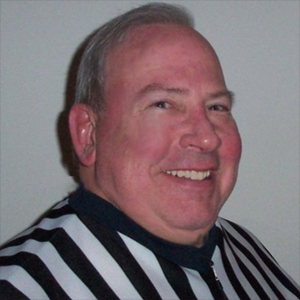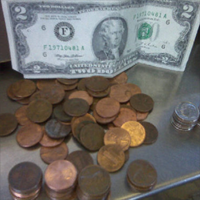
Rndballref
20 Years Experience
Chicago, IL
Male, 60
For twenty years I officiated high school, AAU and park district basketball games, retiring recently. For a few officiating is the focus of their occupation, while for most working as an umpire or basketball referee is an avocation. I started ref'ing to earn beer money during college, but it became a great way to stay connected to the best sports game in the universe. As a spinoff, I wrote a sports-thriller novel loosely based on my referee experiences titled, Advantage Disadvantage
Usually this would be incidental and not called, UNLESS your arms flailing whack the defender.
I am not sure about international rules and it does not seem like an in bounder can shoot from out of bounds. I have seen international basketball where the in bounder can retrieve the ball and throw it in without the referee touching the ball. I actually like that way for inbounding after violations because it makes the defense hustle (kind of like a throw in in soccer).
You are entitled to your vertical space. If you use your forearm out of your vertical space to seperate the defender it is an offensive player control foul.On the other hand, if your forearm is within your vertical space and the defender pushes your arm away to get closer to you it is a common foul on the defender.
The table official's book is the final word unless the referee has certain, personal knowledge. So assuming the official has not kept track of how many fouls a player has, if the scorer discovers a counting error of a player;s foul, he should conference with the referee (head of the game officials), explain what happened, and if a player really had 4 fouls it should be explained to both coaches and the player should be allowed to reenter the game.
Toll Collector
 What's the rudest thing a driver ever said to you?
What's the rudest thing a driver ever said to you?
Sommelier
 Do you occasionally get a little turned off by wine snobbery?
Do you occasionally get a little turned off by wine snobbery?
Swim Instructor
There is no shot clock in NFHS rules. In NCAA men's rules it is a violation for a team to fail to make a try for a basket AND have the ball touch the ring or flange before 35 seconds.
Notice the rule states "a try …" which means that a pass would not qualify even if touched the ring. Not sure what pro rules state.
A player who alights in the air is considered to have court position from where his feet last touched the court. If the player jumps from out of bounds and touches the ball before he touches the court inbounds, it is a violation. There are 2 exceptions to this rule: 1) a defender who leaps from his front court to intercept a pass and lands in his backcourt, and 2) a defender who leaps from his front court to intercept a throw in and lands in his backcourt.
A referee can call a foul anytime during the game, as long as a foul has been committed. If there was no contact and no unsportsmanlike behavior then no foul should be called.
-OR-
 Login with Facebook
Login with Facebook (max 20 characters - letters, numbers, and underscores only. Note that your username is private, and you have the option to choose an alias when asking questions or hosting a Q&A.)
(A valid e-mail address is required. Your e-mail will not be shared with anyone.)
(min 5 characters)
By checking this box, you acknowledge that you have read and agree to Jobstr.com’s Terms and Privacy Policy.
-OR-
 Register with Facebook
Register with Facebook(Don't worry: you'll be able to choose an alias when asking questions or hosting a Q&A.)